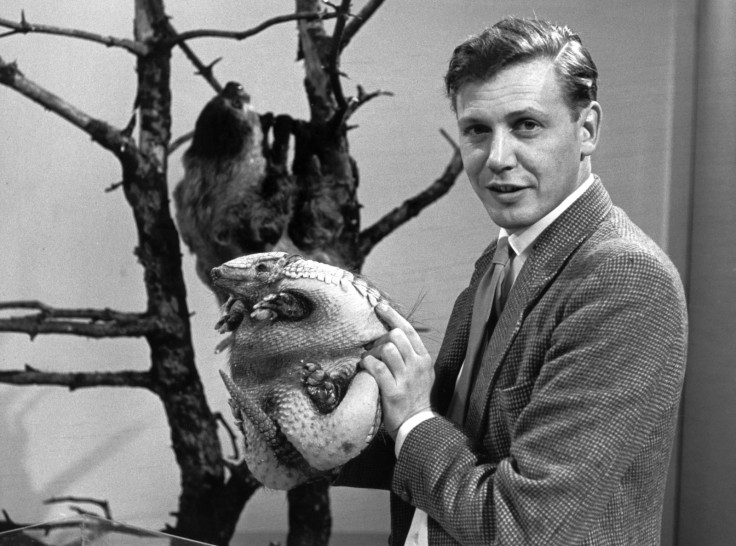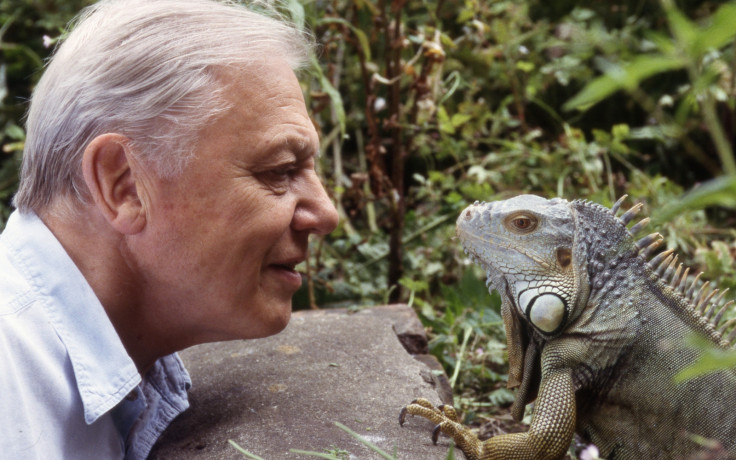David Attenborough: There's overwhelming reason to be pessimistic, but giving up on Earth would be catastrophic
Planet Earth II coincides with free mobile app The Story of Life – the largest ever release of Attenborough's work for the BBC.
David Attenborough has said that while there is "overwhelming reason to be pessimistic" about the health of the planet, giving up our efforts to protect it would be "catastrophic". The broadcaster said mankind must continue to try to come together to fix the problems we have caused – as even though progress is slow, we are moving forward.
Attenborough, 90, was speaking at a conference ahead of the release of his new series Planet Earth II, and The Story of Life – a free app featuring the largest ever digital release of Attenborough's work from the last 60 years.
Discussing the problems facing the planet, he said: "The dangers are very urgent. Never in history – the whole of history – has humanity around the world agreed on something, except once, which was the ozone hole. People saw that problem and they realised if we don't do something, humanity will fry. Nations around the world got together and did something about it and took action. That ozone hole has healed – not completely but it's healing because humans got together and saw what they were doing wrong and fixed it.
"There is almost overwhelming reason to be pessimistic. The problem we've got now is much more widespread and deeply seeded than the ozone problem was. It's gotten worse because of growing population. The problem is bigger – certainly it's bigger. But we got together then and I believe we're on the verge of getting together now. It isn't as though we don't understand what the problem is or we don't have the ways of solving it – we do. What we need to do is get together.
"We're inching forward. The question is, is it inching forward fast enough? The answer is no, it can't be fast enough. But we are inching forward. We've got to keep on going. It will be catastrophic if anybody turned around and said 'it's hopeless I'm not going to do anything about it'."

Planet Earth II will be released at 8pm on 6 November on BBC One. It comes a decade after the original series was released. Tony Hall, director of the BBC, said that during that time there have been huge changes in the way they make nature documentaries – the science and technology has moved on through camera traps and drones, for example. "But one thing has not changed," he added. "David's desire to do things at the edge."
A new addition to the new series is Hans Zimmer, who composed the score. He said he had been inspired by Attenborough's voice: "When I look at nature I hear David's voice. I think a lot of us do, because he has led us in finding our place in this world for such a long time, it's hard to look at nature and not hear David's voice."
Like the Hollywood films Zimmer has worked on, they treated the series as a drama "which it absolutely is". "What the series does extraordinarily and importantly is to draw us humans into this world. One which we must comprehend. What David has been doing has more relevance now than ever before."
"The truly remarkable thing is that all fiction pales in comparison to the reality you [David] have shown us. The secret life we can never touch. I always get to work on fiction. With fiction you're trying to pretend a truth being a fact. It's extraordinary to work on something which is based on fact and delivers an emotional truth."
In the first episode of the series – Islands – we see a sloth swimming through mangroves to find a mate, battling Komodo dragons and the world's largest colony of penguins raising young on the volcanic Zavodovski Island. It also a features an event never before captured on film – sea iguana hatchlings struggling to get to the safety of the rocks as they are hunted by a wall of racer snakes.
Elizabeth White, producer on the Islands episode, talked about how they filmed the event. "We knew snakes hunt hatchlings but filmed before it was a single snake ambushing a hatchling as it went to the sea," she said. "We were standing on the beach a few days after arriving and we'd seen a couple of hatchlings. We were watching as a hatchling popped his head out of the sand and it ran towards the rocks and we all turned – the rocks were 20m away - and the wall just turned into a wall of snakes. And the cameraman started filming."

It is this sort of scene that made Attenborough and the BBC want to make another series of Planet Earth. In another episode, producers used high-definition camera traps to get an insight into the social lives of snow leopards – notoriously solitary and remote-dwelling creatures. Producers spent years tracking scenting rocks the snow leopards use to inform one another of their whereabouts.
Attenborough said the sequence they ended up with was, to him, "one of the most moving" of the whole series: "There are only a few days of the year where they meet other snow leopards, and then it will be a cantankerous encounter. What chances do you have at seeing such an event? You would think none. Snow leopards may only meet a couple of days a year but they know where everybody else is. With these camper traps, they have built up a marvels sequence where you see this lonely animal moving through these vast peaks. Then receiving the messages, then finally encountering one another."
Attenborough said continuing to engage people with the planet is hugely important – and creating documentaries like Planet Earth I and II is a way of doing that. "There's nothing more important as far as I'm concerned than this earth on which we live at the moment, which is in peril and which we have to know."
He said half the human population on Earth now lives in cities and people are more out of touch with nature than ever before. "But since we depend on the natural world, understanding the natural world is absolutely paramount to us," he said.
"It strikes something deep in all of us. People sometimes say to me, how did you first become interested in animals, and I say there is no child born who doesn't have an interest in animals. We all have an interest in animals and it's crucial we hang on to that throughout our lives. TV can provide that link better than ever before in some ways. It can't replace the real thing, but it can give you a greater comprehension of what the world is about and how it works. 50 years ago, there's hardly a species on Planet earth II that anybody would've seen. They wouldn't know about sloths. Now everybody does. It's remarkable and it's valuable."
Reflecting on his 60-year career in broadcasting, he added: "I suppose the only contribution you want to make is awareness, understanding and a realisation of how fragile and important the other creatures that share the Earth with us are. The letters I get from children are absolutely forceful understanding of the importance of the world and the fact it's in danger. It's remarkable when I think the world has only recently woken up to this. 50/60 years ago, nobody even thought we were going to damage the world. Nobody thought we would exterminate a species. Now everybody realises. You may say 'well they're not doing much about it'. That's true. It's also true problems have increased in the last 60 years and you can't avoid them. But now people do know and I think it's something television can partially take credit for."
© Copyright IBTimes 2025. All rights reserved.






















